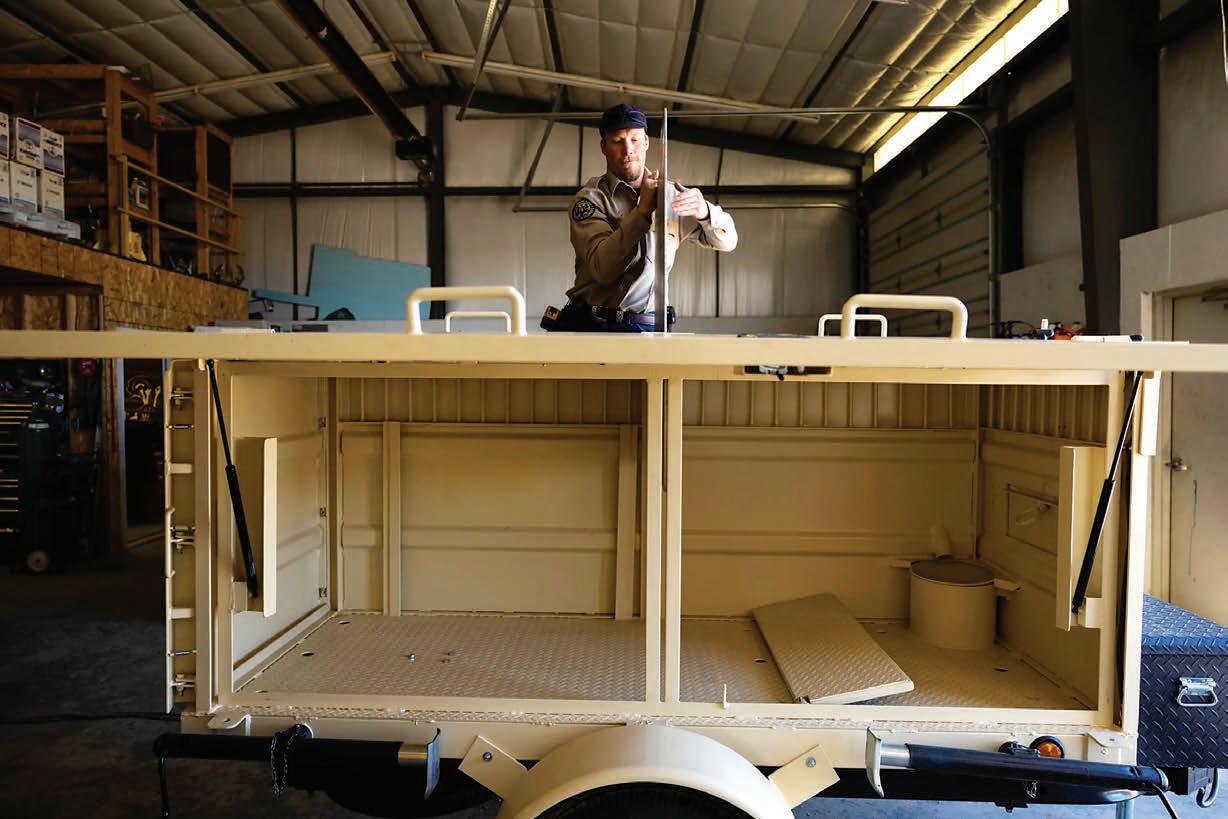
2 minute read
More than 300,000 Coloradans could soon lose Medicaid coverage
BY JOHN INGOLD THE COLORADO SUN
Roughly one out of every 18 Coloradans could nd themselves looking for new health care coverage over the coming year, after the end of a federal pandemic-era rule means that more than 300,000 people are likely set to lose Medicaid bene ts.
e insurance turmoil — the result of the end of the o cial federal public health emergency for COVID-19 — represents the largest transition in health coverage since the A ordable Care Act went into place 10 years ago.
“ e end of the public health emergency is a pivotal moment for Coloradans,” Adam Fox, the deputy director of the Colorado Consumer Health Initiative, said at a news conference earlier this year.
Medicaid is the joint state and federal government health insurance program for people with low income. In Colorado, the program is known as Health First Colorado.
To qualify, households must make 138% of the federal poverty level or below — about $20,000 a year for a single person or $40,000 for a family of four. Children and pregnant people in families who make slightly more could qualify for a related program called the Child Health Plan Plus, or CHP+.
People on Medicaid typically must go through eligibility re-evaluations to make sure they still qualify. But the federal government paused those redeterminations during the height of the COVID pandemic. at grew Colorado’s Medicaid rolls to roughly 1.7 million people, or more than one out of every four people in the state.
Now that the public health emergency is coming to an end, Medicaid o cials in Colorado will again start doing the eligibility re-evaluations.

Kim Bimestefer, the executive director of the Colorado Department of Health Care Policy and Financing, which administers Medicaid in the state, said her department currently estimates there are 325,000 people who are currently covered by Medicaid who will no longer be eligible. e department and a bunch of other state agencies and health care organizations are now focused on making sure those folks maintain coverage by connecting them to other options.
“Everybody is working together in a collaborative, collective, meaningful way to help keep Coloradans covered,” Bimestefer said. “One of the most important things we can do is make sure people have a ordable access to the care they need.” e disenrollments won’t happen all at once. Instead, it will be a gradual process playing out over the next year. e state began sending renewal notices to the rst wave of Medicaid members last month. Once people receive their renewal notices, they will have about 60 days to complete the paperwork before their renewal deadlines. at means the rst disenrollments will start happening in May. e process will continue monthly through April 2024 until everyone in the program has had an eligibility redetermination.

Some people — about a third of those covered by Medicaid, Bimestefer said — will be automatically renewed and won’t have to take any further action. ose folks will be noti ed of their auto-renewal about two months before their renewal date.
People who are no longer eligible for Medicaid will need to nd other coverage options. For most, that will mean buying a private health insurance plan or checking with their workplace to see if they are eligible for employer-sponsored coverage. e most important thing for Medicaid members to do now is to update their contact information with the program. at will ensure that they receive the renewal paperwork — and also make sure that everyone who is still eligible for Medicaid remains covered.
“People need to act,” said Patrick Gordon, the CEO of insurance company Rocky Mountain Health Plans. “Please don’t wait.” is story is from e Colorado Sun, a journalist-owned news outlet based in Denver and covering the state. For more, and to support e Colorado Sun, visit coloradosun.com. e Colorado Sun is a partner in the Colorado News Conservancy, owner of Colorado Community Media.












